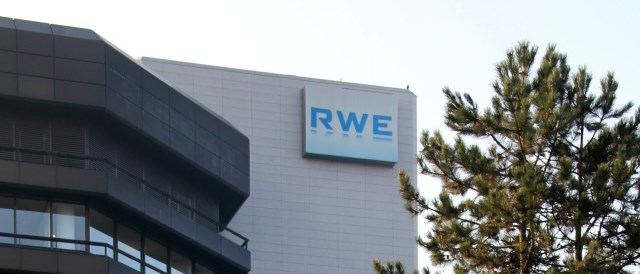Reports have trickled out – and made a bigger splash than the droplets of information may warrant: German energy corporation RWE plans to revise its business strategy. Craig Morris says the new ideas have been obvious for years, but a new ad by the firm shows that the company’s heart still isn’t in it.

German utility RWE seems to be undergoing a change of heart, but no official policy has been announced. (Photo by HOWI, CC BY 3.0)
Little is known about the leaked plans aside from the original report at Energy Post, which indicates that RWE executives have given up trying to be profitable in the context of “this subsidized industry” – by which only PV is meant, however, not coal or nuclear, despite the obvious subsidies there as well. Essentially, the firm says it wants to become and enabler of renewables technologies, helping its own customers to switch to renewables and stabilize the grid with demand management. And today, German economics daily Handelsblatt went further with a report on a “confidential” strategy paper showing that RWE aims to stop investing in coal and gas by 2018 – and that, by 2020, conventional power will only make up a fifth of its revenue.
Two things need be added. First, EU policy expert Alice Stollmeyer wonders how genuine the change of heart can be only days after the firm explained why it is a member of the 10 CEOs Initiative (see this video), which RWE’s CEO describes as an “SOS” – basically warning against blackouts. He specifically says Germany is a good example of what Europe will soon face: high prices from “expensive” PV (note: new PV is no longer expensive, just the old stuff). Then, he complains that Chancellor Merkel shut down 8 nuclear plants in the spring of 2011 without discussing matters with any of Germany’s neighbors. Though it does not follow, he then claims that Germany would already have power outages today because of excess wind and solar if neighboring countries did not buy that power – yet, the surplus production situation would be even worse with those nuclear plants! And it is anyone’s guess why he does not mention that France meets its peak power demand with power imports from Germany.
Too good to be true? RWE strategy doc claims to embrace #EnergyTransition, yet RWE is part of #10CEOsInitiative http://t.co/yfW6kBAJZP
— StollmeyerAlice (@StollmeyerEU) October 22, 2013
The tone gets even worse in a new TV ad (video in German), in which the firms says it is “looking for people who already use energy intelligently.” Here is the opening text:
“Have we Germans gone crazy? Isn’t there an easier project? We want to be the first country that gets all of its energy from renewables.”
Once again, there is nothing right here. Germany has a target of “at least 60%” renewables in its energy supply by 2050 – not even close to 100%, and the target for power is only “at least 80%.” RWE does not even know what its own government plans.
But it gets worse – the firm, which does business in neighboring countries as well, does not know that Denmark has a 100% renewables target for 2050, while the Dutch one is called “100% sustainable.” Clearly, Germany is not “leading the way,” as the RWE ad claims. Nonetheless, the ad says a second time that “it’s going to get pretty crazy.”
It all makes me wonder – if you can’t describe problems accurately, how can you be expected to solve them? And if you can’t portray something correctly, how can you embrace it?
Craig Morris (@PPchef) is the lead author of German Energy Transition. He directs Petite Planète and writes every workday for Renewables International.
[…] utility embraces Energiewende? Craig Morris doubts whether RWE is indeed really revising its business strategy as thoroughly as reports have claimed. […]